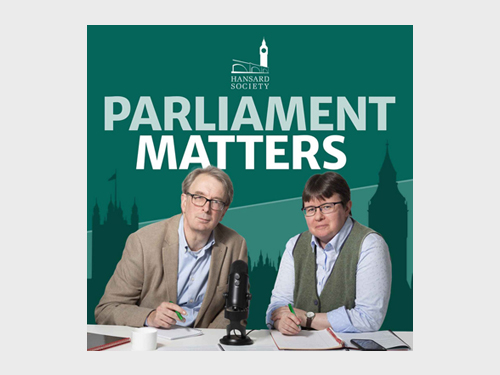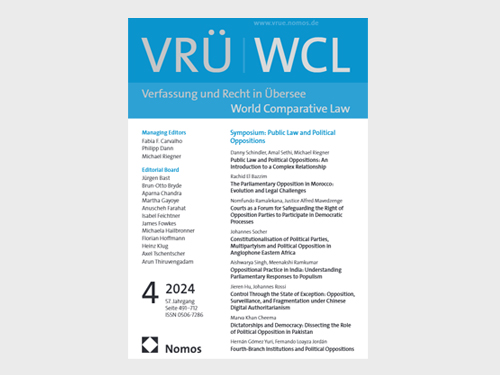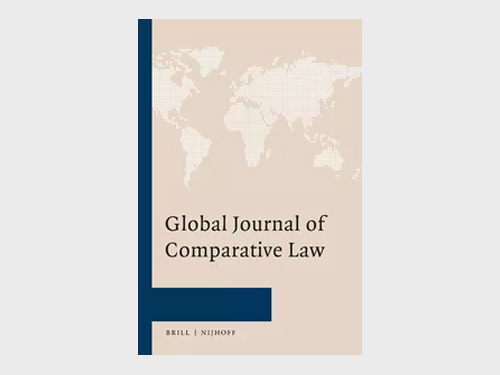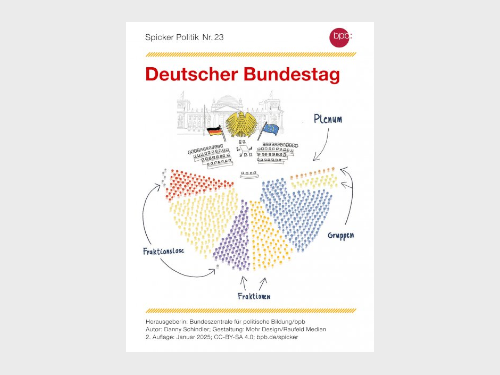
Monitoring the government is a core task of parliaments. Members of parliament have various control instruments at their disposal. The means by which they exercise parl. The means by which they exercise parliamentary control depend primarily on which parliamentary group they belong to: While the opposition parliamentary groups have a particular interest in scrutinising the government publicly - for example by means of question rights - the parliamentary groups in government form a functional unit with the government and scrutinise it primarily in closed sessions.
For questions about the control activities of parliaments, please contact Anastasia Pyschny (pyschny@iparl.de) or Prof Dr Franziska Carstensen (carstensen@iparl.de).

What actually happens when a petition is submitted to the Bundestag? How is it decided which issues are dealt with in the Bundestag and what role does the Petitions Committee play in this? In this episode of the Zwischenruf podcast, we talk about how petitions work, what impact they can have and how they shape the relationship between citizens and parliament. Our guests are Angelika Pendzich-von Winter, former Head of the Petitions and Submissions Department at Bundestag, and Bundestag MP Corinna Rüffer, Chairwoman of the Petitions Committee for the Greens and member of the Labour and Social Affairs Committee. Together we will take a look behind the scenes of parliamentary petition work, from the first signature to a possible change in the law, and discuss the opportunities and challenges that lie in this special instrument of citizen participation.

Why do MPs in some countries address their questions to the Prime Minister rather than the relevant minister? In the Hansard Society's 'Parliament Matters' podcast, Dr Ruxandra Serban (UCL) talks about her joint research with Calixte Bloquet on the French National Assembly's experiments with questions to the Prime Minister, as well as her work on Canada, Australia, Ireland and the UK.

Together with Amal Sethi (University of Leicester) and Michael Riegner (University of Erfurt), Danny Schindler has published a special issue of the journal Verfassung und Recht in Übersee/World Comparative Law (Open Access) on the topic of "Public Law and Opposition". With contributions on China, Morocco, Pakistan and South Africa, among others, the volume sheds light on how legal regulations influence the opposition's opportunities for participation.

Danny Schindler's study discusses possible reasons for the constitutionalisation of parliamentary minority rights and the conceptual and empirical variations in oppositional participation.
Presentation of a research project by Sebastian Ludwicki-Ziegler (University of Stirling) and Andreu Paneque (Universitat Oberta de Catalunya) at the IParl Research Colloquium, Berlin.

All the important information on fundamental topics from politics and society on one A4 page. This is the "Spicker" from the Federal Agency for Civic Education. Issue no. 23 on the German Bundestag by Danny Schindler is now available in an updated version. In it, among other things: Why can the Bundestag also be called a parliamentary group?
Sign up to receive updates, promotions, and sneak peaks of upcoming products. Plus 20% off your next order.